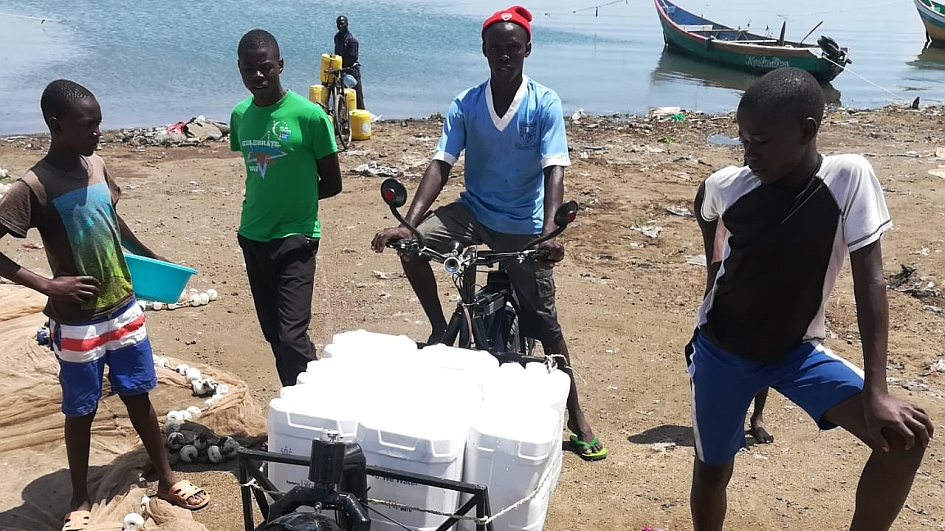When it comes to creating an environmentally-friendly future in the transportation sector in Africa, e-mobility represents several promising opportunities. A group of experts at a conference on innovation and investment in the Western Kenyan city of Kisumu found that the continent’s rural regions stand to benefit the most from new, attractive jobs in the e-mobility sector that stimulate sustainable economic and social development. The conference, put on by Siemens Stiftung, the German development organization Deutsche Gesellschaft für Internationale Zusammenarbeit (GIZ), and UNEP (UN Environment Programme), focused on the challenges and opportunities of rapid changes in mobility.
Estimates by the UN indicate that the population of Africa will double and reach 2.5 billion people by 2050, a trend that will present new challenges for transporting people and goods. Mobility is a basic principle for all aspects of development in a society, affecting everything from supplying market to healthcare. Africa has the youngest population of any continent on earth and forecasting by the African Development Bank predicts that in 2030, around 100 million of these young Africans will be unable to find a job.
An emphasis on environmentally-friendly mobility can lead to valuable jobs in energy, vehicle production, and the service sector. The regional climate provides prime conditions for environmentally-friendly energy solutions. Solar energy can be cheaply and easily converted into electricity in a way that is reliable and decentralized, an approach that also works in villages.
“Regionally-developed e-mobility with purpose-built vehicles running on renewable energy will power the future of mobility in Africa, which will be innovative and climate-friendly. This has the potential to make a significant impact on economic and social development,” says Rolf Huber, Managing Director at Siemens Stiftung. “Some local startups are already hard at work on creative electric vehicles that range from electric cargo bikes to boats with electric motors. East Africa is committed to making technological leaps and is the dynamic heart of this new movement. Bringing these young entrepreneurs together in the same room with energy producers, local government officials, and representatives from international organizations created a lot of momentum.”
WeTu, a local social enterprise founded by Siemens Stiftung earlier this year, has already established extensive partnerships with local and international startups. The company is building up a charging infrastructure with more than 30 solar hubs in Western Kenya. This involves testing technology, refining business models, setting up service and repair centers, and creating rental stations for the batteries. Local production of electric cargo bikes, converting conventional mopeds to run on electricity, and the expansion of recycling centers for electronic waste and old batteries are all under way. The German Federal Germany’s Ministry for Economic Cooperation and Development (BMZ) is supporting related studies on technical infrastructure and economic, environmental, and social impacts.
The conference panel focused on rural Kenya, with an emphasis on the challenges and opportunities of e-mobility in the Lake Victoria region. In that area, transport tasks are done on foot or with boats, bikes, or two-wheeled motor vehicles. The cost of petrol and diesel is high and steadily on the rise, and the widely-used vehicles represent a significant source of pollution to the air, soil, and the water of Lake Victoria and its tributary rivers.
The cross-sector round table in Kisumu identified 10 essential points for a rural e-mobility action plan. These range from energy production and business models to digital infrastructure and recycling. Siemens Stiftung will now follow up on these action items and work on implementation with other stakeholders and institutions. Simultaneously, Siemens Stiftung will intensify investments in charging infrastructure, new vehicles, and developing new business models. Expanded local partnerships and collaboration with GIZ and UNEP in addition to German, European, and African governments will ensure further support for accelerated implementation.



